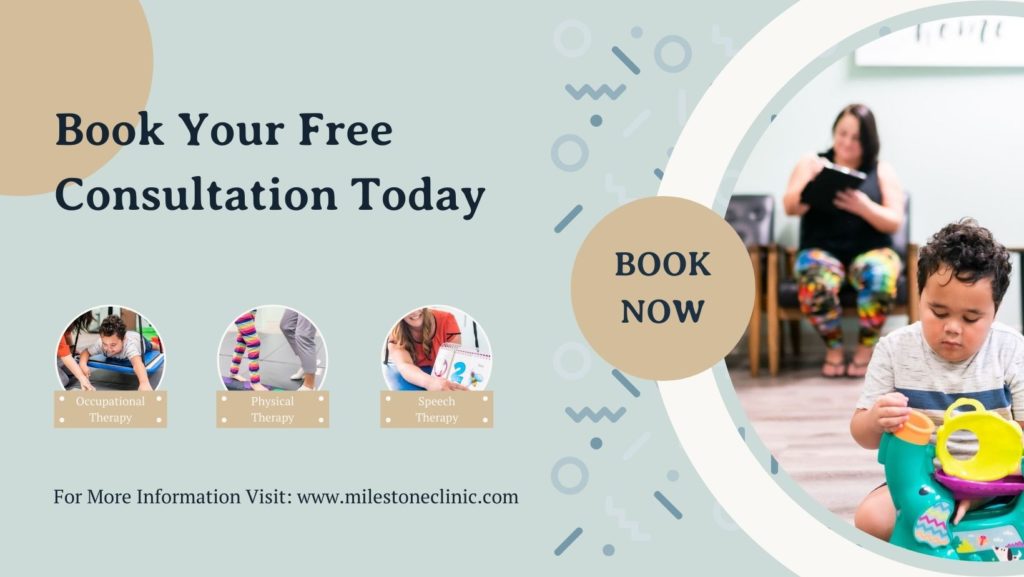Early Intervention is both an idea and a technical term for a program. The idea behind early intervention is that children diagnosed with a health condition, disability, or possible developmental delay who receive intervention in the first three years of life are more likely to have a successful outcome. Intervention, in this case, means skilled teaching or support from a professional such as a physical therapist, Occupational Therapist, or Speech-Language Pathologist.

Benefits Based on Knowledge
The benefits of early intervention are based on decades of research and knowledge, and it’s intuitive. Think of a toddler who is a classic ‘late talker.’ Many pediatricians will take the wait-and-see approach and bet that the child will catch up on their own. However, not all of these toddlers will catch up and may require skilled support. A child with a delay or disorder who does not get support early is at a disadvantage compared to their peers; it might affect their vocabulary, ability to understand and form complex sentences, ability to follow directions at home and later in the classroom, etc.
Compare that situation to one where a child with a delay or a disorder received intervention within their first three years. Maybe direct support from a provider like a speech-language pathologist, but with a focus on family coaching so language strategies and problem-solving techniques can be practiced throughout the day. This child is more likely to catch up and families are better equipped to navigate whatever needs their child might continue to have.
Evidence-Based
The evidence for this early intervention idea was so strong that a federally funded campaign to identify and support children was started in 1986. Every state in the USA has an Early Intervention program that provides free services for infants, toddlers, and their families when a child has or is at risk for, a developmental delay, disability, or health condition that may affect typical development and learning.

The Goal of Early Intervention
The goal of Early Intervention is to lessen the effects of a disability or delay by addressing the needs of young children across five developmental areas:
- Cognitive development
- Communication development
- Physical development, including vision and hearing
- Social or emotional development
- Adaptive development (Individuals with Disabilities Education Act)
Early Intervention Program Benefits
An Early Intervention program can remediate a mild impairment or mitigate future difficulties. Early intervention can also help children acquire compensatory skills or tangible support for skills they may never acquire because of a disability. For example, children with difficulties walking can get leg braces or wheelchairs, children with hearing disabilities can get access to hearing aids, and those with severe communication difficulties can get access and training to Augmentative and Alternative Communication devices (AAC) that become their voice.

Due to the broad nature of health conditions or risk factors, there are dozens of positive outcomes that exist for almost every situation you can think of. Research shows that early intervention can improve:
- Strength
- Balance
- Coordination
- Literacy skills
- Narrative structure
- Phonological development
- Auditory comprehension
- Reading comprehension
- Vocabulary
- Play skills
- Fine motor skills
- Hand strength
- Self-dressing skills
- Handwriting
- …And many others!

Filling in the Gaps
According to a ten-year-long study of the outcomes of children who have graduated EI programs, nearly one-third of the former EI participants were not receiving special education services at kindergarten, nor did they have any disability! Another 10% were reported to have a disability that did not require special education.

Positive Outcomes
Years of research document that early identification and treatment of potential delays or deficits will result in a host of positive outcomes. If you have any questions or concerns with your child’s abilities we invite you to contact our office and schedule a free consultation! We are happy to listen to your concerns and help you decide on some of your next steps.

